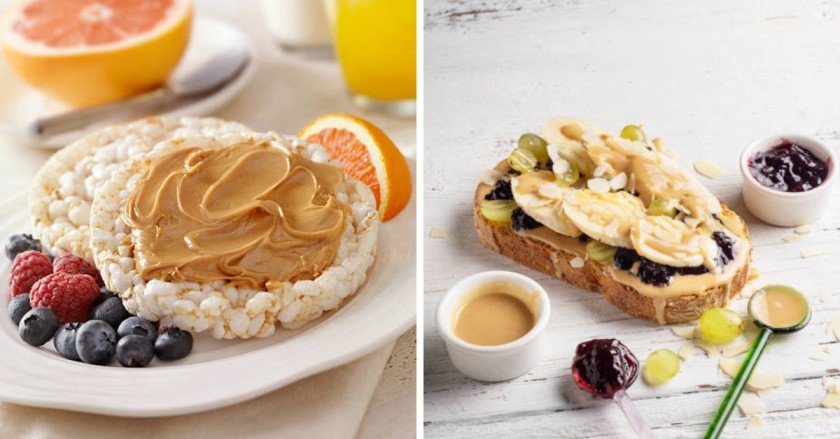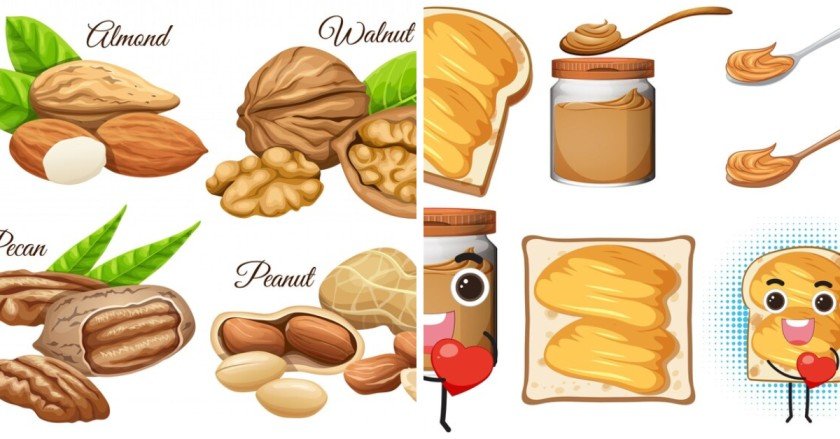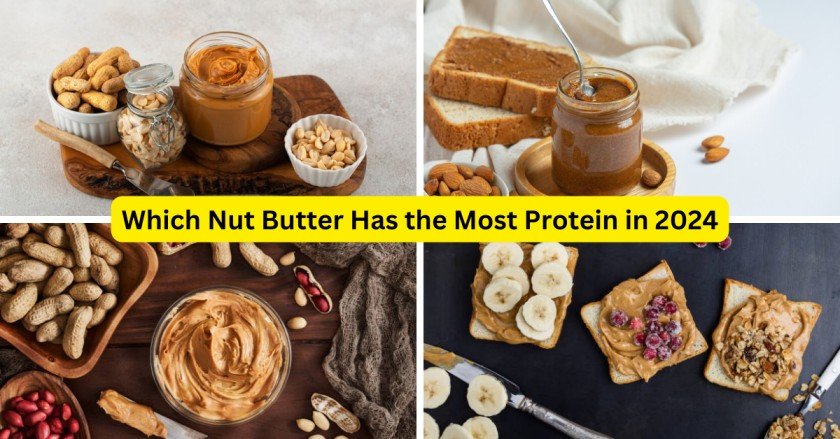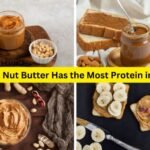The Ultimate Guide to Nut Butter Nutrition: Discovering the Protein Powerhouse
In pursuit of a healthier lifestyle and dietary choices, many around the globe, especially within Tier 1 countries, are swapping traditional spreads for nutrient-dense alternatives. One of the most pressing questions for health-conscious individuals and fitness enthusiasts alike has become, “Which nut butter has the most protein?”
This comprehensive guide is crafted to offer clarity and answer precisely that, with an analysis of various nut butters and their protein content. In this article, we ensure that the information presented is up-to-date for the year 2024, providing fresh and trustworthy insights into the world of nut butters.
Table of Contents
High-Protein Nut Butters: A Nutritious Overview
Nut butters are not only incredibly versatile and delicious, but they are also packed with protein, heart-healthy fats, essential vitamins, and minerals that nourish our bodies. Whether it’s the creamy richness of almond butter, the smooth silkiness of cashew butter, or the robust flavor of peanut butter, these delectable spreads offer a wide array of options to suit different tastes and preferences. From spreading them on toast or adding them to smoothies, to using them as a dip for fruits or incorporating them into baked goods, there are endless ways to enjoy the goodness of nut butters. Their substantial nutritional value and ability to provide sustained energy have made them a beloved staple in many diets, supporting overall health and well-being. So go ahead, indulge in the delightful world of nut butters and savor the goodness they bring to your daily meals and snacks.
Top Nut Butters Ranked by Protein
From almond to cashew and beyond, this section will delve into the rankings of nut butters based on their protein content, focusing on those with the highest levels. Get ready to explore the rich and creamy world of nut butters, where each variety brings its own unique flavor profile and nutritional benefits. Whether you’re a fitness enthusiast looking to fuel your workouts or simply a nut butter aficionado seeking new taste experiences, this comprehensive guide will help you discover the top contenders in the protein-packed realm of nut butters. Let’s dive in and uncover the delicious possibilities that await!

Health Benefits of High-Protein Nut Butters
Discover the countless health benefits linked to high-protein nut butters. These creamy spreads not only aid in muscle repair and promote satiety, but they also contribute to weight management by boosting metabolism and supporting healthy digestion. Additionally, they provide a rich source of essential nutrients like vitamins, minerals, and healthy fats, which are crucial for maintaining optimal health. Incorporating high-protein nut butters into your diet can be a delicious and nutritious way to support your overall well-being and provide long-lasting energy throughout the day. So go ahead, indulge in the goodness of these wholesome spreads and enjoy the added benefits they bring to your health and wellness journey.
How to Incorporate High-Protein Nut Butters into Your Diet
This section offers a wealth of practical tips and creative ideas to help you add a protein punch to your meals. Discover the versatility and deliciousness of various nut butters as you explore innovative ways to incorporate them into your dishes. From spreading them on toast to blending them into smoothies, you’ll find a plethora of inspiring ideas to elevate your culinary experience and boost your protein intake.
Making an Informed Choice: Understanding Labels and Nutritional Info
We are here to provide expert guidance and unwavering support, assisting you in navigating the intricate world of interpreting labels and nutritional information. Our team of dedicated professionals is committed to helping you understand the nuances and complexities of these details, empowering you to make informed choices that align perfectly with your specific protein needs, ultimately leading to optimal health and overall well-being. Let us be your trusted companion on this transformative nutritional journey, as we equip you with the knowledge and resources to make the absolute best decisions for your personal growth and nourishment.

Comparing the Protein in Top Nut Butters
When it comes to protein content, your nut butter choices stack up as follows according to current data:
- Almond butter has the most protein of all nut butter options, delivering a solid 9 grams per serving (about 2 tablespoons or 32 grams). This gives it a clear advantage thanks to almonds being one of the most protein-rich nuts.
- Peanut butter also performs well with 8 grams of protein per serving. Classic and convenient peanut butter remains a go-to choice.
- Cashew butter contains 5 grams of protein per serving, landing in third place. Its creamy and versatile taste still makes it a good pick though.
- Pistachio butter has around 4 grams of protein per serving. The vibrant green color and unique flavor provide their own appeal.
- Hazelnut butter offers just 3 grams of protein per 2-tablespoon serving. It earns points however for its rich, chocolate-like taste.
So in the battle of the nut butters, almond comes out on top with a hefty protein payload per spoonful. But keep reading to learn why varying nutrition profiles and individual needs should guide your personal choice.
Factors Impacting Nut Butter Protein Levels
When evaluating the protein differences among nut butter types, several factors come into play:
- Nut Protein Content – The protein levels in the nuts themselves directly impact the butters. For example, almonds happen to be one of the most protein-rich nuts, which translates to their butter.
- Serving Sizes – Make sure to compare nutrition based on equal serving sizes. The protein per 2-tablespoon (32 grams) serving given allows an apples-to-apples look.
- Ingredients – Stick to plain nut butters with minimal ingredients for better nutrition. Flavored and blended products may incorporate other items that dilute protein density.
- Roasting – Many nuts undergo roasting during processing, which can slightly diminish protein quantity versus raw varieties. Try to pick raw or lightly roasted options when possible.
- Manufacturing – Production methods sometimes alter protein maintenance in finished butters, so sticking to trusted nut butter brands can help prevent this issue.
So by taking these key factors into account when purchasing and consuming nut butters, you’ll get the full protein benefits that each has to offer.
Choosing the Right Nut Butter for You
While protein should play a big role in picking the optimal nut butter, your final choice also depends on personal nutritional needs and taste preferences too.
Here are some things to consider:
- Allergies – If you’re allergic to any nuts, focus on nut-free options like sunflower or pumpkin seed butters which still provide protein.
- Protein Uses – If protein is fueling heavy workouts, stick to a nut butter that delivers a higher protein punch like almond or peanut.
- Overall Diet – Those following restricted diets like vegan or keto may have different motivations for consuming nut butters. Pick products that align with your regimen.
- Pairings – How you plan to eat the nut butter also matters. Certain ones compliment toast better while others work well in smoothies or energy bites based on consistency.
- Taste – Lastly, enjoyment is crucial. Try an assortment of nut butters to discover new favorites besides just peanut butter to keep enjoying protein-packed snacks and meals!

The Takeaway – Almond Butter Tops for Protein
When it comes to which nut butter variety has the highest protein content, almond butter leads the pack with an impressive 9 grams per serving. However, our comparison found peanut and cashew to also supply ample protein, followed by pistachio and hazelnut. Factors like nut type, ingredients, serving sizes, and processing impact density too. And most importantly, match your taste, diet and nutrition goals by exploring many delicious options now available on grocery shelves and online marketplaces.
Conclusion: The Superior Protein Choice in Nut Butters
In conclusion, high-protein nut butters are not only a delicious and versatile addition to any diet, but they also offer an abundance of nutrients that support overall health and well-being. From the protein powerhouse peanut butter to the creamy and nutritious cashew butter, each variety brings its own unique benefits and flavors to the table. By incorporating these delectable spreads into your meals and snacks, you can elevate your nutrition game and enjoy the wholesome goodness that they bring. With a deeper understanding of nut butter labels and nutritional information, you can make informed choices that perfectly align with your specific protein needs and contribute to optimal health for years to come. So go ahead, indulge in the scrumptious world of high-protein nut butters, and experience the many benefits they have to offer. Your taste buds and body will thank you! So why wait? Start exploring and discovering your favorite high-protein nut butter today! Happy Spreading!
Additional Content: The Evolution of Nut Butters
Nut butters have come a long way since their first recorded use in ancient Egypt. Back then, peanut butter was a paste made from roasted peanuts and used for various purposes, including as a protein source for soldiers. Today, nut butters have evolved into a diverse and popular food category that caters to different dietary needs and preferences. With the rise of veganism and plant-based diets, almond butter has become a favored alternative to traditional dairy butter. And for those with allergies, sunflower seed butter offers a delicious and safe option. The demand for nut butters continues to grow as people discover their numerous health benefits and versatility in the kitchen. So next time you spread some creamy goodness on your toast or dip your apple slices into a jar of peanut butter, remember the long journey of evolution that brought nut butters to your plate. Keep exploring and trying new varieties, and who knows what exciting developments lie ahead for the world of nut butters! The possibilities are endless. So go ahead, grab a spoon, and dig into the deliciousness that is high-protein nut butter! Enjoy! Happy Spreading!
Frequently Asked Questions (FAQ)
What are the nutritional advantages of incorporating high-protein nut butters into my diet?
High-protein nut butters offer a multi-faceted nutritional profile, beneficial for muscle repair, satiety levels, and overall metabolic health. They are rich in healthy fats, fiber, vitamins, and minerals such as magnesium and potassium. Additionally, they are a convenient protein source for those on vegetarian or vegan diets. By choosing nut butters with minimal added sugars and salt, you can maximize health benefits without compromising on taste.
How do I compare nut butters to choose one with the most protein?
When comparing nut butters, it’s crucial to look beyond the protein content. Evaluating the complete nutritional panel, including fat types, additional ingredients, and processing methods, gives a comprehensive understanding. Nut butters with simple ingredient lists and without added sugars or hydrogenated oils are typically the healthiest choices. Almond butter is often highlighted for its protein content, but also consider options like cashew and sunflower seed butter to diversify your intake.
Can high-protein nut butters be part of a weight management plan?
Absolutely! High-protein nut butters can be an integral part of a weight management plan due to their protein content, which helps in feeling full and satisfied. Incorporating them into meals or snacks can reduce overall calorie intake by curbing hunger pangs. It’s important, however, to monitor portion sizes as nut butters are calorie-dense.
Are there nut butter options for those with allergies?
For individuals with nut allergies, seed-based spreads like sunflower seed butter or pumpkin seed butter provide similar nutritional benefits without the allergens. They are an excellent source of protein and unsaturated fats and can be used much like traditional nut butters in recipes and snacks.
How can I ensure I’m choosing the healthiest nut butter at the store?
To choose the healthiest option at the store, read labels carefully. Look for nut butters with the fewest ingredients, no added sugars, palm oil, or trans fats. Many health-conscious brands also provide organic and non-GMO options. Additionally, checking for certifications like “Certified Vegan” or “USDA Organic” can guide you toward healthier choices.
What creative ways can I use high-protein nut butters in my recipes?
High-protein nut butters can be used creatively in a variety of recipes. They can be incorporated into smoothies for added creaminess, used as a base for sauces and dressings, or added to oatmeal and yogurt. You can also use them in baking for a protein boost in muffins, pancakes, or homemade protein bars.
Is it better to buy store-bought nut butters or make my own?
Making your own nut butters at home allows you to control the ingredients and avoid preservatives or excessive sugar. However, many store-bought options now cater to health-conscious consumers and offer clean, minimal ingredient lists. Whether you choose to buy or make your own, look for products or recipes that emphasize natural ingredients and offer the full benefits of the nuts’ nutritional content.
Read Related Article on Health:-
Effective Weight Loss Strategies Without Gym for 2024
As we enter 2024, more people are seeking effective weight loss strategies without relying on gyms. A balanced diet is key, emphasizing lean proteins, whole grains, fruits, vegetables, and limited processed foods. Daily physical activity outside the gym also helps burn calories and boost metabolism; options include walking, biking, sports, etc. Adequate sleep regulates appetite hormones and aids decision-making regarding food choices. Mindful eating fosters a healthy relationship with food by tuning into the body’s hunger cues. Staying properly hydrated supports weight loss through optimal digestion, metabolism, and reduced snacking. With healthy lifestyle adjustments like these, significant progress can be made towards weight goals without gym dependence. Implementing even small consistent changes leads to sustainable success…. Read More
 Skip to content
Skip to content












